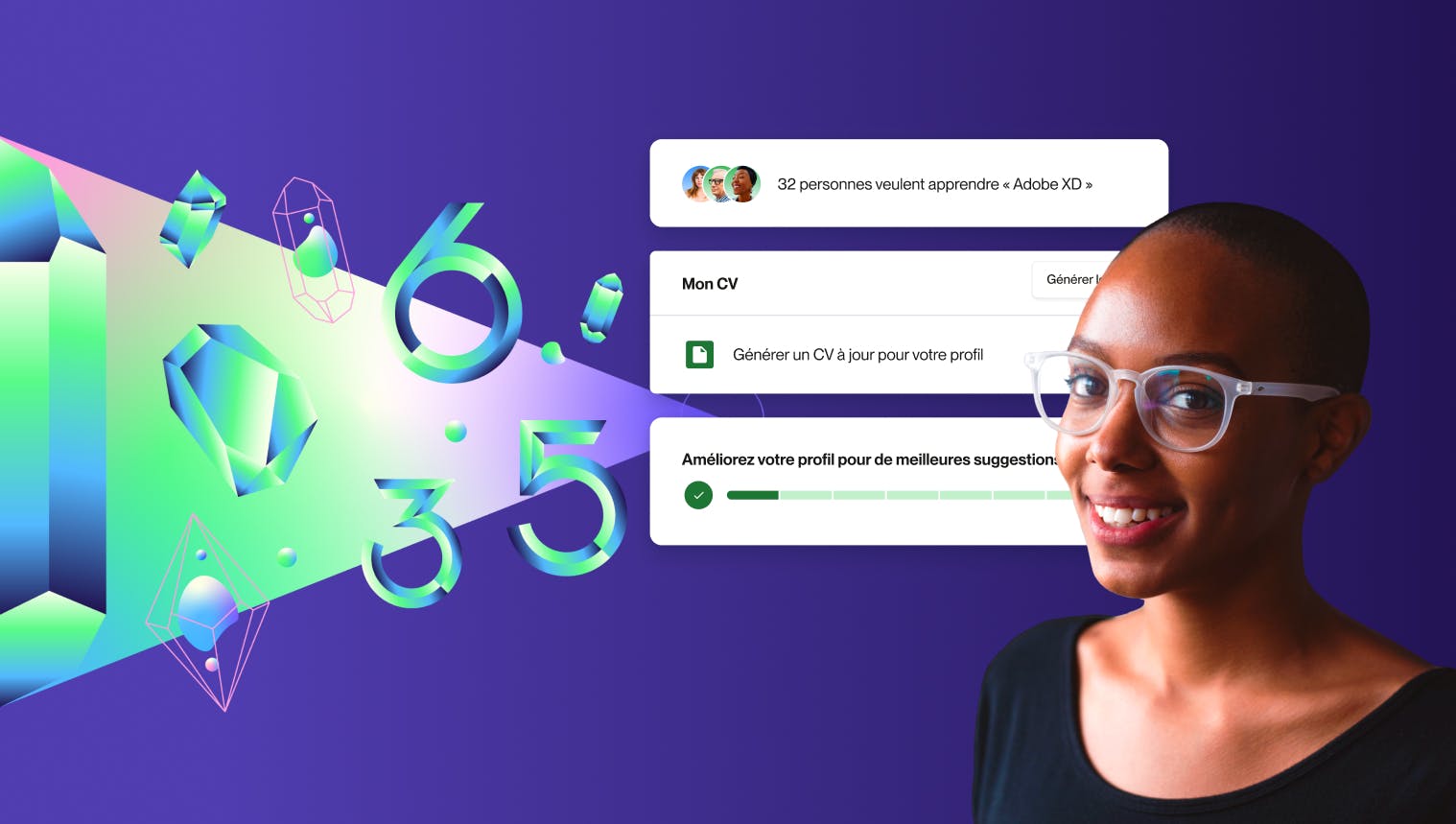Why is Skills Management Essential for Skills-Based Organizations?

Business leadership agrees: skills drive growth like never before.
In a 2022 survey by Deloitte, 89% of executives across various industries stated that skills were necessary for how organizations define work, deploy talent, manage careers, and value employees. Similarly, around 90% said they were actively experimenting with skills-based approaches.
Adopting a skills-based approach is now more than just a trend; it's critical to keep pace with the market and an absolute necessity if you want to stay ahead.
If skills are the cornerstone of a skills-based approach, skills management is the added touch, the final step to make this approach successful.
The success of Skills-Based Organizations
The past few years have seen a rapidly evolving work landscape where agility is crucial. According to a Deloitte Insights study, 77% of business leaders and HR professionals say the flexibility to transfer skills to work is essential for facing future disruptions.
Job titles and descriptions have defined how work is done for over a century, from hiring to career development. It’s limited to standardized tasks performed in functional roles and makes all employees’ decisions based on their position in the hierarchy, but the time has come for this organizational model to be updated. Organizations need to be agile, grow according to market needs, and innovate in employee journeys.
That’s why companies are adopting entirely new operational methodologies for work and their teams, focusing on skills rather than just employment.
"Our business environment is changing rapidly, and the skills needed to be competitive are very different from what they were five or seven years ago. For decades, many of our HR processes institutionalized as a profession were designed for a different, slower, and much more stable environment. They were not designed for the speed and agility our businesses demand today.".
Deloitte, The Skills-Based Organization Podcast
However, if skills are the cornerstone of a skills-based strategy, they are just raw material. Identifying, cataloging, and analyzing them is crucial to transform their potential into a revolutionary business catalyst. In other words, you need to know how to manage them. And that's where effective, dynamic, precise, and personalized skills management comes in.
How to make the most of your skills-based approach?
Mastering skills management is adding the final piece to your strategy's puzzle.
Skills-based organizations are:
- 107% more likely to effectively place talent
- 98% more likely to retain top-performing talent
- 57% more likely to anticipate and respond to change effectively
A dynamic, precise, and personalized skills management process is the key to unlocking your skills-based organization's ROI.
Definition of Skills Management
Skills management is the continuous technical and strategic process of identifying, mapping, and leveraging your staff's skills to transform skills into solutions that meet your organization's current and future needs.
It is how you leverage skills.
Skills management at the heart of your skills-based approach
While the link between skills management and skills-based organizations seems obvious, it's best to understand precisely how and why everything fits perfectly together.
And it looks like the following outline:
A skills approach:
- Fosters a people-centered culture
- Is an egalitarian approach for employees regardless of their background
- Enables people to see their skills and potential
- Encourages agility and a more flexible use of internal talents
And leads organizations to:
- Retain top-performing employees
- Maximize talent
- Adapt to rapid changes
- Foster inclusivity
- Nurture innovation and creativity
- Increase employee well-being and productivity
Skills management, on the other hand:
- Improves visibility of existing skills
- Matches the right person to the right job
- Identifies skills gaps and training needs
- Establishes concrete strategies
- Improves resource allocation
And together...
A skills approach supported by practical skills management allows your organization and you as an HR professional to:
- Enhance career pathways
- Improve matching for successful internal mobilities
- Create an agile workforce
- Support succession plans
- Enhance employee experience
- Optimize training programs
- Improve employee satisfaction and retention

An easy journey to skills management
A skills management journey consists of three main stages.
Start simply with AI: Begin by collecting existing data from various departments and roles.
Consolidate data: Centralize all data into a unified tool, improving organization and visualization.
Add intelligence: Enhance the system by adding intelligence with new information related to employees, market benchmarking, or other aspects.
Regardless of the amount of data you have, or where you start, the journey is simple with the right HR tool!
With the correct Skills Intelligence technology, you can align with your unique needs and organizational culture while creating a skills hub to better use and manage your company's skills data, drive your career planning, and perform key skills and skills gap analysis to make data-driven decisions.
This requires involvement from HR to leaders and managers, to integrate skills management, and therefore the skills-based approach, into everyone's vision.
Skills governance represents both the general principle and the organizational structure that dictates how the company will approach skills management strategically.
Essentially, skills governance is the “who” of skills management and can be centralized or decentralized.
Who is involved?
The CHRO and the HR team largely drive centralized skills governance. While it has advantages, its implementation can be challenging if the strategy is poorly understood or communicated to leaders and stakeholders in each business division or geographic area.
Decentralized skills governance is when business leaders lead skills management in each line of business. Similarly, there are advantages here (such as subject matter expertise), but they may need more overarching vision and strategy HR provides.








Thus, the best approach for most organizations is hybrid skills governance, where skills management is centralized at the technological level for strategic insight and driven by real-time internal data influxes about the company but decentralized operationally, with shared information returned to each manager to guide daily plans and operations.
Choosing the right skills management solution
While it may seem quite explicit, skills management is more precisely managing your employees' skills. But what's more significant is how you derive business value from those skills.
Technically, this means cataloging, analyzing, and organizing skills data, including integration, deduplication, and linguistic management—but strategically; skills management is about leveraging, developing, and transforming skills into a competitive advantage.
More than just a philosophy to better understand your employees, skills management encompasses both administrative tasks and strategic actions that support a skills-based approach.
It involves using tools and methodologies to identify, assess, improve, and manage your organization's skills. Several steps are required, but implementing and optimizing your skills management process can be classified into integration and execution. Both stages are equally important.
Effective execution of setting up your skills management system during onboarding can ensure smooth operation and long-term sustainability for your project.
However, maintaining your skills management process during the execution phase is equally important: a successful skills-based approach requires an updated view of your organization's skills, and a precise skills framework can significantly impact your HR use cases, increasing the accuracy of skills suggestions, matching opportunities, and workforce analysis.
365Talents’ skills management approach
Your skills framework must be accurate and precise, detailed yet concise. It should be versatile, reflecting the dynamic influences of your organization and industry, and, most importantly, it should be personalized.
At the same time, your skills repository should be unique, built with your own words and conditions, and tailored to the context and culture of your specific skills.
The above requires a considerable amount of data, and data management involves navigating through various processes and steps, a complex and lengthy task.
365Talents simplifies the management of your skills data, allowing you to focus on high-value business use cases. By delegating management work to 365Talents, you can avoid getting bogged down in time-consuming and tedious micromanagement.
5 objectives of 365Talents Skills Management:
- Eliminate data micromanagement, allowing HR to focus on essential HR use cases.
- Ensure the accuracy of employee statements and any other internal sources of skills data (internal influx).
- Provide key insights/flows from external sources, such as references, industry standards, or frameworks.
- Leverage generative AI influx.
- Facilitate global mobility by providing multilingual capability.
365Talents helps you create a unique, accurate, concise skills framework that fits your organization's specific context and culture. The repository is designed to be tailored to your employees' particular capabilities and constantly updated to meet HR needs and stay in line with the latest trends. It's also designed to be dynamic, seamlessly operating within the workflow, thus becoming an invaluable tool for HR professionals. Most importantly, it’s accessible to all other HR processes and systems, serving as a common language for talent management and talent experience.
Your framework is a fusion of various sources that can be assembled through intelligent,strategic interpretation and manipulation to provide a consistent and solid view of your company's current skills.
Regardless of the form, size, or amount of skills data you currently have, we can integrate additional data or complement it with our existing frameworks, thus bridging potential gaps and reflecting your approach.








Read more resources...









